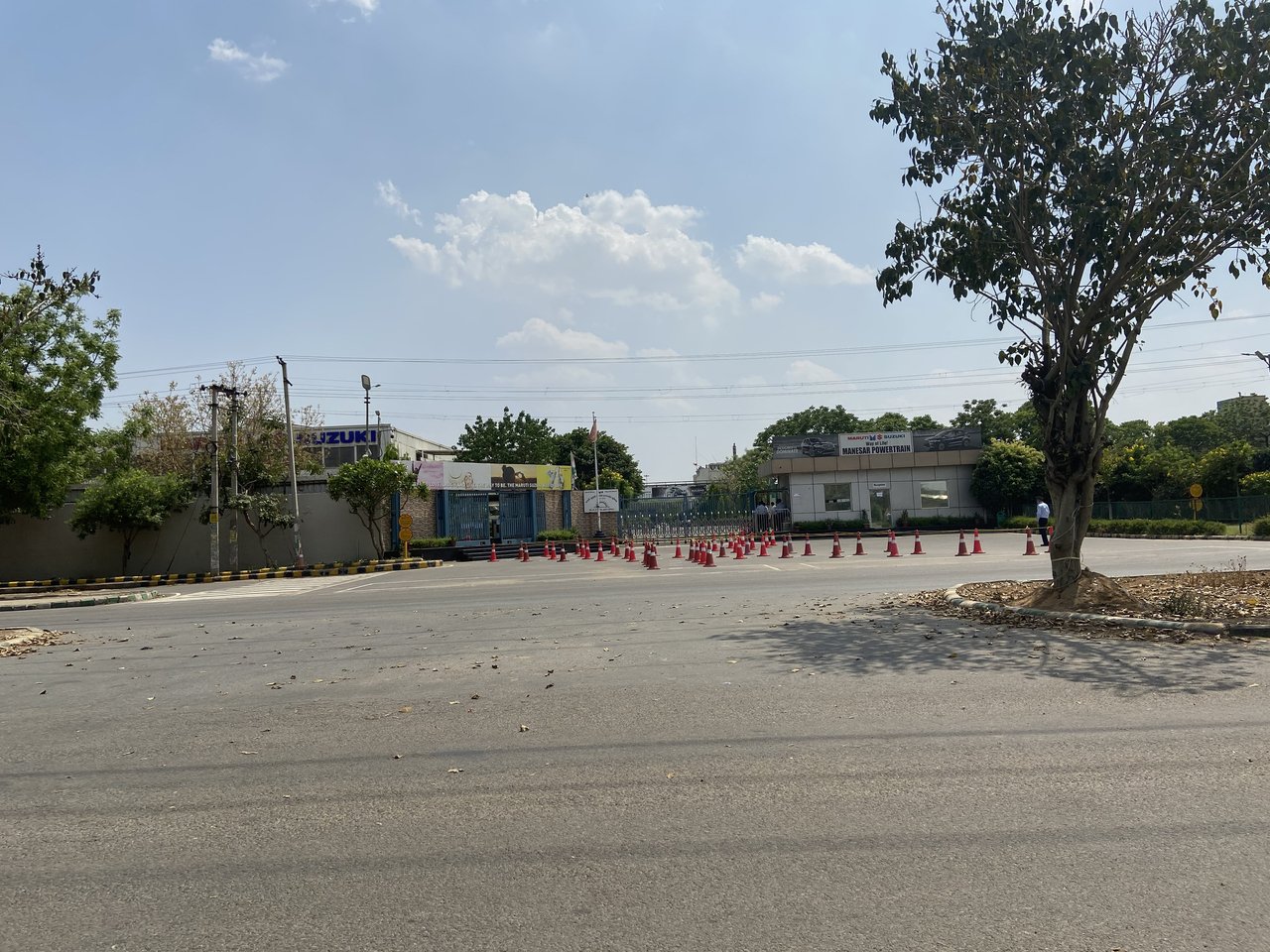Coronavirus: Few companies in India have restarted, despite government's green light for resumption
Sign up now: Get insights on Asia's fast-moving developments
NEW DELHI - It is difficult to spot a vehicle or a human being at Manesar Industrial Model Township, an industrial area with around 2,000 factories.
The automotive hub interspersed with pharma and food processing firms is usually pulsating with activity as trucks and other vehicles transport goods and raw material in and out of industrial units.
Even though the Indian government has allowed economic activity to resume in industrial zones like Manesar, where there are no coronavirus cases, there is little sign of life.
Only a handful of factories producing essential items like medicines and medical equipment are operating since plants began opening on April 20.
Mr Praveen Sharma, who runs Hinds Plastic Machines, has permission to manufacture IV or intravenous poles and he has rearranged the factory floor so his five workers are not near each other.
But he has no plans to seek permission for his core business of producing machines for manufacturing plastic products.
"I don't think we can start production (of the machines) before lockdown is lifted because in lockdown there so many hindrances and so many guidelines we are not able to fulfil," said Mr Sharma, citing non availability of daily wage labourers, supply chain being shut down and a lack of orders.
"It's not so easy to get permission from the government. Once you get permission, how do I get permanent workers to come back. They don't want to live in the factory. So I had to get workers from elsewhere."
Government rules for opening factories dictate that workers must be housed and fed within the premises and owners must ensure that staff are not infected, so the liability rests on them.
Permission is also granted by local administration with complaints from factory owners that the process is going slow.
Still, even those who have been permitted since April 20 to produce non-essential items remain hesitant about reopening.
India's largest car maker Maruti Suzuki has opened its factory in manesar for maintenance and basic work but the firm has said production is not resuming just as yet.
Mr Namman Chaudhry is in a similar quandary. He intends to go back to work on Monday at his company Ample Auto Tech Private Limited, which makes spare parts for car chassis.
"None of our ancillaries are getting permission. We are going to start prepping and sanitising the plant ... We are export oriented and it may take till May end for the supply chain to regularise," he said.
"Everything is so ambiguous right now."
India has been in lockdown for over a month, bringing the economy to a grinding halt.

ngrestart - A photo and video of empty streets at Manesar Industrial Model Township in the state of Haryana
PHOTO: ST
The International Monetary Fund this week cut India's estimated GDP to 1.9 per cent for the 2020-21 financial year, down from 5.8 per cent in January.
Consumption, a key driver of the Indian economy, is down with salary cuts and layoffs already starting in some sectors.
The twin challenge facing Prime Minister Narendra Modi is to contain the virus while slowly restarting the economy.
Yet factory owners the Straits Times spoke to highlighted multiple problems, pinpointing a shortage of daily wage labourers as a key issue.
India saw a massive reverse migration after the government announced a lockdown and predictions are that those who were unable to go home will do so once train and bus services resume.
Mr Vijay Kumar, a daily wage worker at a factory in Rajasthan, gets calls everyday from his family, who are 1,380 km away in Bihar state.
"I couldn't get transport so I had to stay back. At least I am getting water and food. I have a wife and three children at home. They keep telling me to come home," he said. "Let's see what happens."
As the country hobbles out of the lockdown, small- and medium-size enterprises are seen to be particularly vulnerable.
"I feel in the next six months all small businesses will have liquidity problems," said Mr Manmohan Gaind, vice-president of the Manesar Industries Welfare Association.
"I understand the government can't give sops to industry but what we want as an industry is hand-holding to pass through this torrid time.
"And by hand-holding I mean if the government has to collect taxes, they can defer them and make it more comfortable. This is after all a wartime situation."


